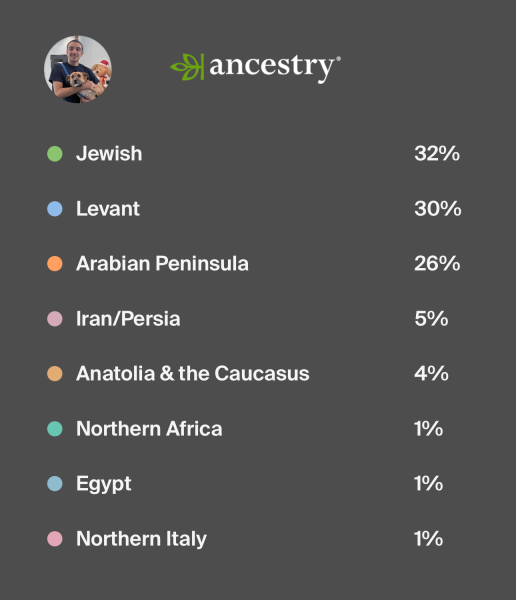No Comment: Shutting down newspaper comment sections is a positive move
On Feb. 1, a series of active comment sections across America were shut down as newspaper publisher Gannett closed online comments for most of their publications. Large publications such as CNN, The Washington Post and Popular Science have not had comment sections for years. As most internet users know by experience, comment sections on the internet can simultaneously be a place to find community while also serving as an example of the very worst aspects of humanity.
Gannett’s decision came as the latest in a series of cutbacks in staffing. Comments on articles published online were previously moderated by journalists in the hopes of maintaining civility and keeping commentators on topic. But, as a statement published in many Gannett publications read, “Comment sections across the internet can quickly devolve when they’re left unmonitored.”
Some of Gannett’s larger publications, presumably with correspondingly larger budgets and staff, will continue to maintain their comment sections.
This story caught my attention because my local paper is owned by Gannett. After reading about the disappearing comment sections, I went to check for myself and could not find comments on any of the published articles.
Overall, I believe that moving away from the comment section on news articles is a positive decision. In times of increasing polarization and distrust of media it is unfortunately a forum for harassment, often behind a shield of anonymity or physical distance. Without distracting comments underneath a news story, the focus will hopefully be shifted to the content of the story itself.
While I have long since learned to ignore my local paper’s comment section, there was a time when I couldn’t resist scrolling through it. I was often disgusted by the comments shared, as they were not beneficial to the general public and could quickly turn into ugly arguments marked by personal attacks.
When I was 18 and wanted to express an opinion about a city council election, I chose to write a letter to the editor instead of engaging in the comment section. This seemed to be a more effective way to express an opinion than starting arguments or being called naive by nameless, faceless commenters, as I was afraid would happen.
Studies confirm the lived experiences of many users, showing harassment is unfortunately commonplace in the comments. A 2021 Pew Research Center survey determined that among individuals who had experienced online harassment, the second most common place to be harassed was a discussion forum. Social media ranked as the highest place of online harassment, but comment sections were second in Pew Research Center’s previous “State of Internet Harassment” studies in 2014 and 2017.
The harassment is not only directed at fellow commenters. Journalists also face inappropriate comments on articles they author. In 2016, The Guardian conducted a survey of their vast comment sections and found this harassment falls primarily on writers who are women, people of color or members of other minority groups.
“The 10 regular writers who got the most abuse were eight women (four white and four non-white) and two black men,” The Guardian states.
Not only is this abuse discriminatory, it can also have an impact on the content a journalist produces. When facing harassment in comment sections, a writer’s credibility can be called into question. Further effects may discourage reporters from writing about specific topics.
In 2018, a survey was conducted by the International Women’s Media Foundation and Troll-Busters.com to give “a clear examination into the professional dangers of being a female journalist in the news media today.” This study found 61% of online threats or harassment faced by the female journalists and other media workers surveyed came from comment sections.
“Clearly respondents engage in self-censorship when going about their work; 37 percent indicated they avoided certain stories and 23 percent indicated they had trouble establishing rapport with interviewees,” the report states. Others responses indicated that harassment had made women consider leaving their jobs, made them notice a negative impact on their career advancement or caused sources to become alienated from them.
I was further supportive of shutting down comment sections on newspaper websites, when I found previous experiments in removing them resulted in the majority of readers being unaffected, or not noticing the absence. This seems indicative of the fact that commenters make up a minority, however vocal they may be.
In 2020, The University of Texas at Austin’s Center for Media Engagement conducted research with Gannett which involved turning off comments on some sites while using Facebook or other moderated commenting on others, or allowing only subscribers to comment. They found most readers did not notice the comments were turned off. Even among those who had commented in the past, only about 24% noticed the change.
The volume of site traffic where comments were enabled was not noted to change, but the time spent on article pages decreased. While it was thought disabling comments on these sites would drive commenters to social media where they could interact with other users, the study found social media comments were similar to when comments on articles were present.
Comments on newspaper articles were not present in the immediate, interactive sense they are today throughout the long history of printed papers. It is better to return focus to the content of the news, rather than the scattered voices of the comment section.
For those who want their voices heard, there are other outlets available. Even websites which have turned off comments can be found on social media, for better or for worse. There are even moderated comment sections to be found on some news sites, including The Orion. You can leave a comment here, or maybe, don’t.
There’s always the option of writing a letter to the editor, or emailing a journalist with comments or questions. Maybe even better, readers can start a conversation with a friend, coworker, neighbor or classmate, hopefully with more decorum than typically found in internet comments.
Heather Taylor can be reached at [email protected]



















Texas // Jul 21, 2023 at 12:10 pm
The real reason newspapers shut down comments is that their mistakes, errors, and misinformation were called out. You often see it when newspapers report police stories often blindly parroting whatever the police department statement said. They almost never include the actual facts of what occurred in blindly accept the police statement.
roger clark // Jun 9, 2023 at 1:37 pm
this is pretty crazy
640-200-8200